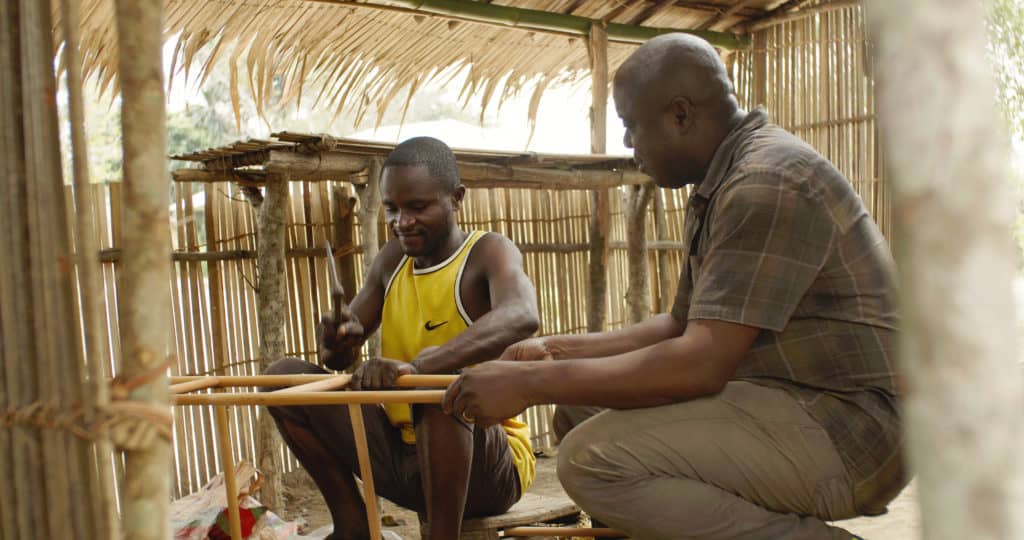Mbou Mon Tour has also worked with communities to develop new, sustainable ways of earning a living – alternatives to slash-and-burn agriculture and other destructive practices. About 10,000 people benefit directly from the Mbou Mon Tour’s work, and their successful approach is also preserving and increasing natural forest cover in the Congo Basin, one of the world’s most important carbon sinks.
The organisation was formed by local chiefs, notables and a group of academic cadres who came together in 1997 to stop deforestation linked to burn agriculture and the rarefaction of the fauna. They first obtained local community forestry concessions in 2017. This model is an alternative to creating nature reserves in threatened areas, which in other parts of the world commonly leads to conflict over land. Mbou Mon Tour have succeeded where conservation agencies and governments have often failed, and are global pioneers in community-led forest management.
New farming methods – and more power for women
Mbou Mon Tour has supported a decisive move from forest to savannah farming, and the development of new commercial activities for local people. Most of the savannah farming is done by women and they are supported with training and literacy education, disease resistant seeds, tools, livestock and other resources.
Income is shared equally throughout the six villages, supporting services such as maternity healthcare and transport to markets and schools. This shift has also improved the nutrition and health of the community. During the coronavirus pandemic, local people have been self-sufficient in food, while still protecting the forest.
Adeline Ngamombele is president of the NGO’s women’s group. She says: “Several women like me have been trained by Mbou Mon Tour on literacy and crafts and learnt how to read and write. So we can also offer ideas to our chiefs and they can easily listen to us. For example, we advocated for the sanitation of our water source as our children often fell ill and a lot of money had to be spent on hospitalising the children. Mbou Mon Tour heard us and carried out the work.
“We are saving the money we used to spend on health care. Thanks to my savings, I now have six hectares of savannah. I plant cassava, corn and sweet potatoes there. I have a garden, and I feed myself and my children. Mbou Mon Tour gave me improved seeds, machetes and hoes to do the ploughing.”


